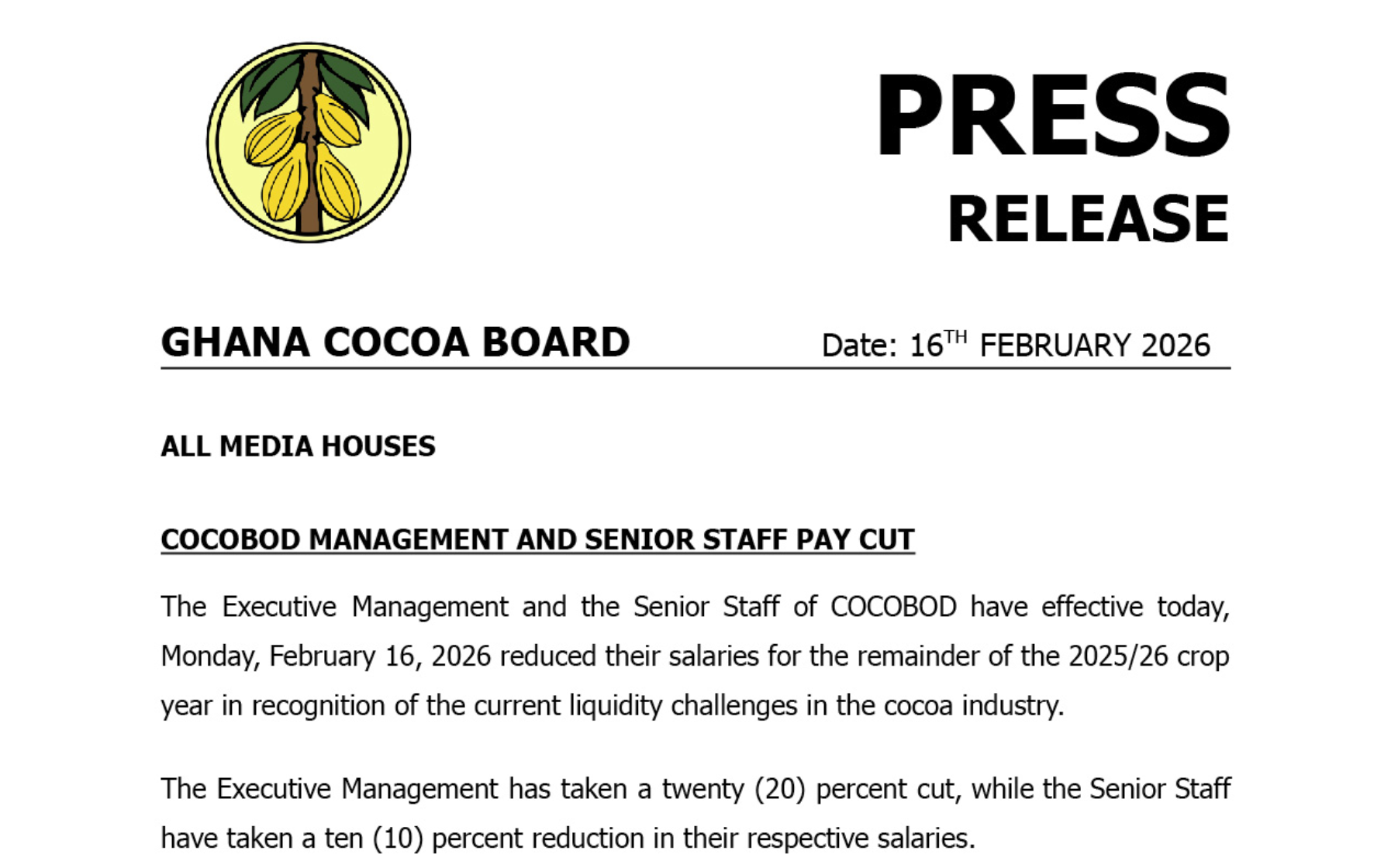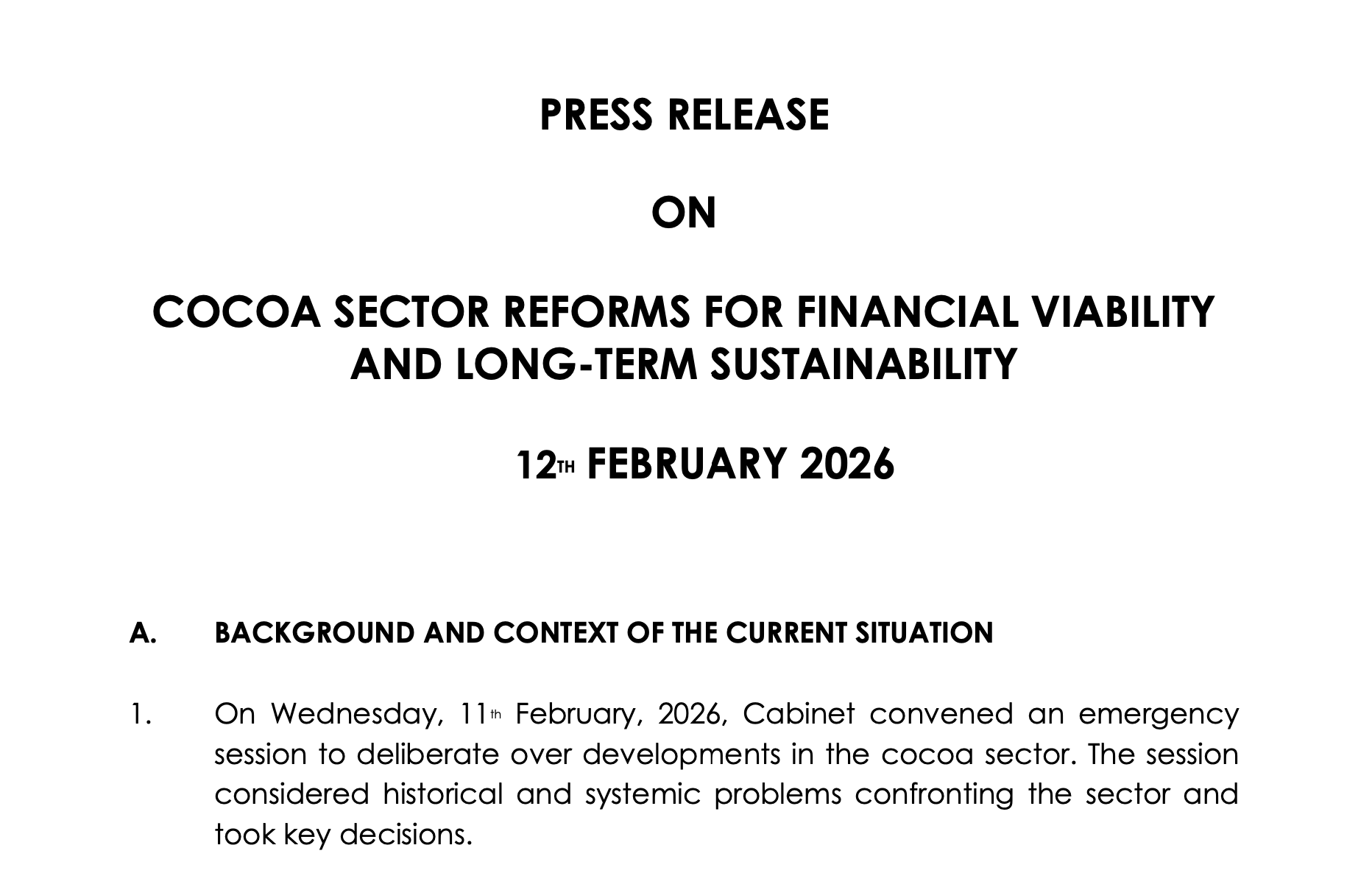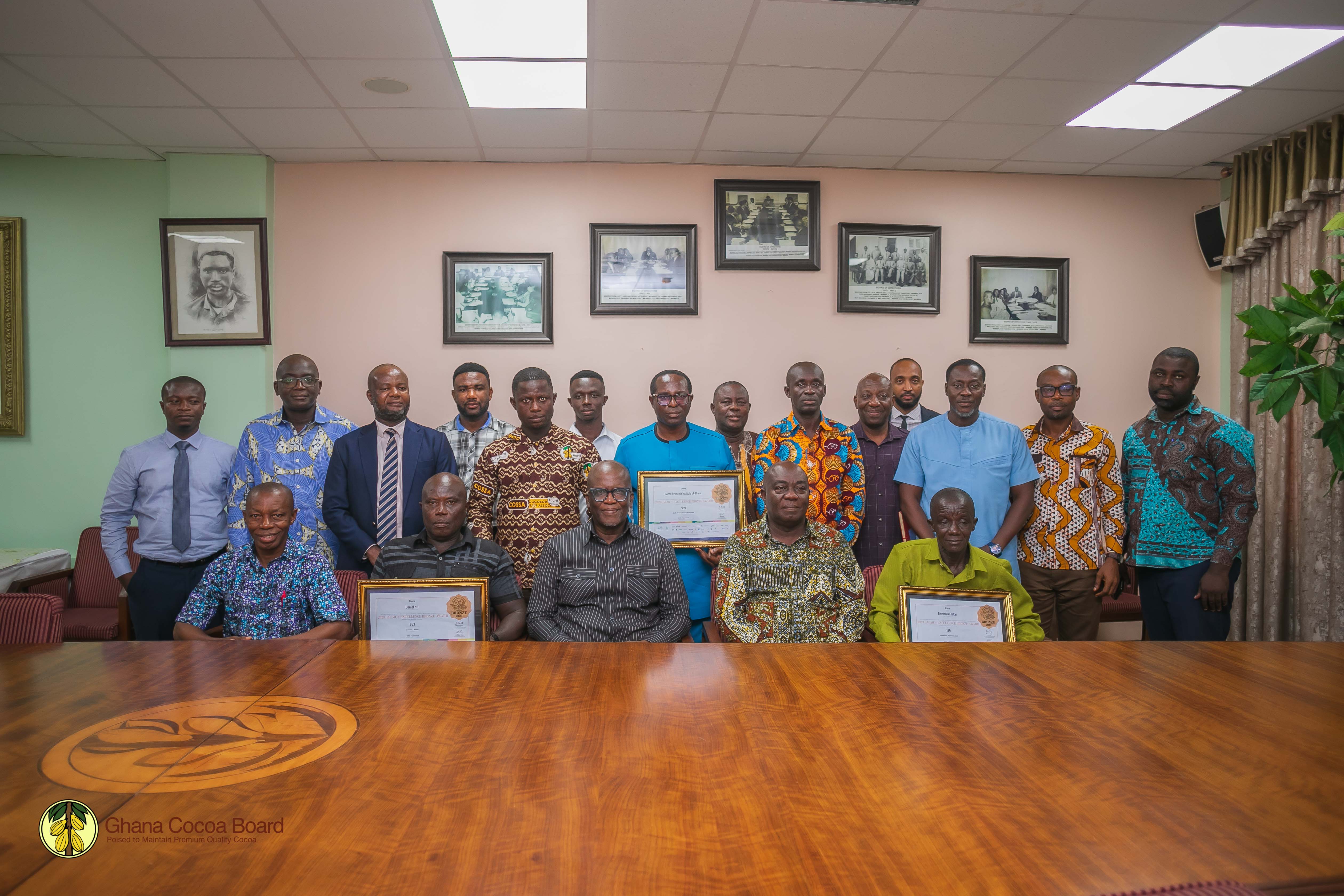COCOA FARMING SUPPORTS CARBON MITIGATION – CRIG BOSS

Date: 27th March 2023
The Executive Director of the Cocoa Research Institute of Ghana (CRIG), Dr. Francis Padi, has justified the contribution of cocoa farming towards promoting agroforestry and carbon footprint reduction in Africa and beyond.
Dr. Padi disclosed this during a working visit of a team of officials from the European Union (EU) responsible for monitoring the implementation of trade and environmental regulations.
He explained that since its inception in 1938, CRIG has extensively researched into cocoa, alongside tree crops like coffee, shea, cashew and cola; and provided impressive findings that have supported the cultivation of cocoa in a socially and environmentally sustainable manner in the country.
He indicated that as a research institute specialised in agronomy, entomology, plant breeding, pathology and new products development; the institute’s core mandate focuses primarily on the integration of agroforestry in mainstream cocoa farming with the overall goal of ensuring sustainable use of the ecosystem.
‘Satellite images of Ghana support the massive contribution of cocoa farming to agroforestry because cocoa farming drives a number of environmental co-benefits, significantly sequestration carbon emissions. When you view these satellite images, you realise that most of the areas covered with greenery, are areas where cocoa farming is rife and in such zones, eco-tourism is said to thrive and promote biodiversity’, he said.
The CRIG boss said his outfit would continue to influence the implementation of good agronomic practices through farmer sensitisation to help farmers to improve productivity levels while promoting high quality of cocoa beans that meet international standards.
Mr Regis Neritan, leader of the EU delegation, commended the institute for its groundbreaking research and innovation laurels. He said COCOBOD has a commendable strategy for cocoa sustainability that deserves to be showcased to major stakeholders and international legislators for consideration when making laws that affect the welfare of cocoa producers.
Mr Neritan expressed the EU's is readiness to support in the issue of fair pricing if Ghana and Ivory Coast through the Ghana Cote d’Ivoire Cocoa Initiative are able to provide accurate data on their social and environmental sustainability strides to support a valid case for increased cocoa pricing on the international market.
He reiterated the need for enhanced dialogue and consultations to help make COCOBOD's sustainability strategy more relevant to international policy.
The delegation used the opportunity to tour selected CRIG cocoa farms to acquaint themselves with some field activities. Other facilities of the institute were also toured by the team.
Other News / Articles you might be interested in.

COCOBOD MANAGEMENT AND SENIOR STAFF PAY CUT
The Executive Management and the Senior Staff of COCOBOD have, effective today, Monday, ...
Read More
PRESS RELEASE ON COCOA SECTOR REFORMS FOR FINANCIAL VIABILITY AND LONG-TERM SUSTAINABILITY
A. BACKGROUND AND CONTEXT OF THE CURRENT SITUATION 1. On Wednesday, 11th February, 2026, ...
Read More
COCOBOD HONOURS GHANAIAN COCOA FARMERS FOR EXCELLENCE AT INTERNATIONAL COCOA AWARDS
Management of Ghana Cocoa Board (COCOBOD) has honoured the winners of the 2023 International ...
Read More